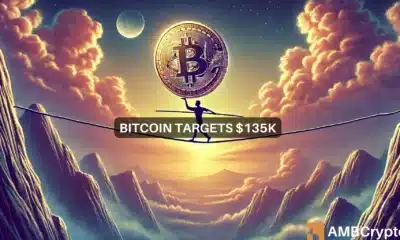Why it’s best to draw the line between Ethereum, Polygon

Ethereum’s transaction fee was well under $3, at the time of writing. In April 2021, it spiked up to between the $65-$70 range, making the chain extremely expensive to utilize as a smart contract platform. Over the past few months, however, Polygon and Binance Smart Chain have put their name in the hat as alternatives. Now, while ETH’s transaction fee has gone down, additional competition might be affecting ETH’s usual operation traffic.
SushiSwap showing the way?
While comparisons are a continuous form of representation in the crypto-industry, recent data seemed to suggest that SushiSwap registered a difference after shifting a few of its transactions on Polygon.
As per data, SushiSwap carried out transactions worth over $2.9 million in ETH fees, for a mere $1773 on the Polygon chain. These transactions were also 2.25 times faster at a fractional cost of 0.06%. The total savings on transaction cost came up to be a whopping 1,23,500%.
At press time, MATIC’s price was also recording massive bullish gains with a recovery over $1.60.
Ethereum is solid, but what about Polygon?
Ethereum’s scaling solution has always been under development, keeping the decentralized narrative in mind. Now, Polygon also claims to be thoroughly decentralized. But, there is one major issue here – Concentration in the hands of a few stakers.
According to data on Nansen, more than 50% of the staked MATIC that secures the network is owned by Binance and MATIC’s Foundational Team. The major risk of a network with concentrated validators is that it becomes much more simple to collude and trigger arbitrage changes.
Another point that might suggest that decentralization is still hazy is based on the fact that Polygon’s chain does not have a more secure option like roll-ups, which Binance Smart Chain has started with its validators. Hence, Polygon might be appreciating in the market, but the bubble bursting is a risk too.
Choose your Platform
The aforementioned comparison does not really go specifically in favor of any particular project. However, the importance of Ethereum’s slower growth should be appreciated. The platform got attention with its DeFi traffic and suddenly, everyone wanted a piece of it. Now, users are more skeptical because of the pandemic and others have picked up the pace.
However, Polygon may need another year to completely disrupt security concerns and adhere to a more decentralized state.






